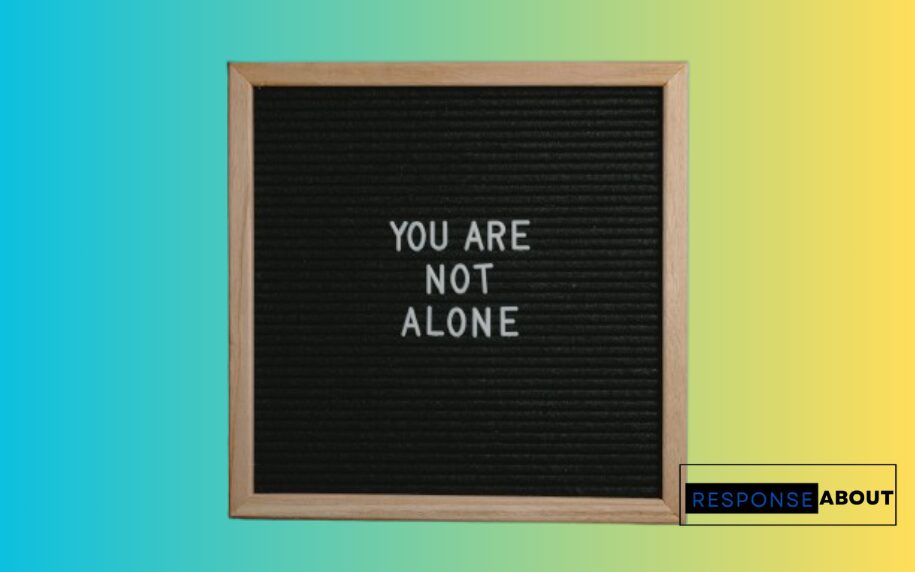We’ve all been there! Your friend, family member, or coworker is going through a tough time, fighting an illness, or recovering from an injury. You want to show your support and let them know you’re thinking of them, but the standard “I hope you feel better” feels a bit… meh.
Sure, it’s a nice sentiment, but does it really convey the depth of your care and concern? Does it offer any tangible comfort or encouragement? Not so much.
That’s why we’ve compiled this handy list of 55 alternatives—heartfelt messages that go beyond the generic to lift your loved one’s spirits and remind them they’re not alone. Whether you deliver them in person, pop ’em in a get-well card, or shoot a quick text, these thoughtful words will brighten their day and maybe even speed up their healing.
Let’s dive in, shall we?
1. Acknowledge Their Situation
First things first: let the person know you recognize what they’re going through. A little validation can go a long way in helping someone feel understood and less alone. Try saying:
- “I’m sorry you’re not feeling well.”
- “It sounds like you’re having a tough time.”
- “I can’t imagine how frustrating this must be for you.”
- “I know this illness has been really hard on you.”
- “It’s okay to not be okay right now.”
2. Offer Practical Support
Sometimes, the most meaningful way to show you care is by lending a helping hand. Offer to take some of the burden off their plate with these practical gestures:
- “I’m headed to the store later. Can I pick up anything that might help, like tissues or soup?”
- “I made an extra batch of my famous chicken noodle soup. I’ll drop some off for you later.”
- “Don’t worry about the project deadline. I’ll talk to the team and make sure you have the time you need to rest and recover.”
- “I’ll take notes in class for you so you don’t fall behind while you’re out sick.”
- “I’m happy to watch the kids for a few hours so you can get some much-needed rest.”
3. Send Some Love
A little bit of love and positivity can brighten even the gloomiest of sick days. Remind your friend or family member that they’re in your thoughts with these heartfelt messages:
- “Sending you all the positive, healing vibes.”
- “I’m keeping you in my thoughts and hoping for a speedy recovery.”
- “Wishing you brighter days ahead—you’ve got this!”
- “Thinking of you and hoping each day brings you closer to feeling like yourself again.”
- “Sending a virtual hug your way. Wish I could be there in person to deliver it!”
4. Inject Some Humor
Laughter really is the best medicine (okay, after actual medicine prescribed by a doctor). A well-timed joke or funny message can lift spirits and provide a welcome distraction from feeling crummy. Give these a try:
- “I’d offer to come over and keep you company, but I’m not sure the world is ready for the combined power of our sweatpants and messy buns.”
- “I’m officially appointing myself as your personal Netflix recommender during your recovery. Prepare for an onslaught of binge-worthy shows!”
- “I bought you a ‘Get Well Soon’ balloon, but it floated away. I guess it’s more of a ‘Get Well Eventually’ wish now.”
- “I’m not saying your immune system has been slacking, but it might be time for a performance review.”
- “If laughter really is the best medicine, I’m here to be your personal comedy dispensary. What’s your joke preference: clever puns or silly one-liners?”
5. Share a Favorite Memory
When someone’s stuck in bed feeling miserable, a happy memory can transport them to a better place (mentally, at least). Share a favorite moment you’ve shared to put a smile on their face:
- “Remember that time we got caught in the rain on our way to the concert? We were soaked and shivering, but singing along to every song made it an unforgettable night. I know we’ll have more adventures like that when you’re feeling better!”
- “I was just thinking about our inside joke from high school—the one that still makes us laugh until we cry. Hold onto that laughter as you rest up and recover.”
- “Whenever I see a picture from our trip to the beach last summer, it takes me right back to that perfect day. I can’t wait for more sun-soaked memories with you!”
- “I know you’re going through a tough time, but I hope you can find some comfort in remembering all the incredible moments we’ve shared. You’ll be back to making new memories in no time.”
- “Scrolling through old photos, I found a gem from our first day as roommates. We had no idea what we were doing, but we figured it out together. I know you’ll figure this out too, and I’ll be here every step of the way.”
6. Encourage and Motivate
Battling an illness can be physically and emotionally draining. Give your loved one a pep talk to help them stay positive and focused on healing:
- “You are one of the strongest, most resilient people I know. I have no doubt you’ll bounce back from this even stronger.”
- “I know it’s hard to see the light at the end of the tunnel right now, but I promise it’s there. Keep pushing forward—you’ve got this!”
- “Remember, this is just a temporary setback. Better days are coming, and I’ll be right here cheering you on.”
- “You’ve overcome so many challenges before, and this is no different. Trust in your strength and keep taking it one day at a time.”
- “Progress isn’t always linear, and that’s okay. Celebrate every small victory along the way, and know that each day brings you closer to a full recovery.”
7. Ask How You Can Help
Sometimes the most supportive thing you can do is simply ask what someone needs. Show that you’re there to help in any way you can with these open-ended offers:
- “I want to support you in whatever way you need. Is there anything specific I can do to help make this time easier for you?”
- “I know everyone’s needs are different when they’re not feeling well. Please don’t hesitate to let me know if there’s anything I can do—no request is too big or too small.”
- “I’m here for you, whether you need someone to listen, help with errands, or just deliver a care package. What would be most helpful for you right now?”
- “I can’t promise to have all the answers, but I can promise to be there for you. How can I best support you as you navigate this challenging time?”
- “You’re not alone in this. I’m here for you every step of the way. What can I do to help lighten your load while you focus on getting better?”
8. Remind Them to Be Patient
Recovery is rarely a straight line, and it’s easy to get frustrated when progress feels slow. Encourage your friend to be patient with themselves and the healing process:
- “Healing takes time, and that’s okay. Be gentle with yourself and trust that your body is doing its best to recover.”
- “It’s normal to have good days and bad days. Don’t be too hard on yourself if progress feels slow—you’re still moving forward.”
- “Remember, rest is productive too! Give yourself permission to take it easy and prioritize self-care without feeling guilty.”
- “I know it’s frustrating when recovery isn’t happening as fast as you’d like. Try to focus on the little improvements you’re making each day.”
- “Setbacks are a normal part of the healing process. Don’t let them discourage you—keep focusing on the progress you’ve made and the brighter days ahead.”
9. Offer a Distraction
When you’re stuck in bed with nothing but your thoughts, it’s easy to start feeling down. Offer some welcome distractions to help pass the time and boost their mood:
- “I just started this hilarious new podcast that I think you’d love. Want me to send you the link so you can check it out while you rest?”
- “I know you’re bummed about missing game night, so I thought we could have a virtual one instead! I’ll set up a video call and we can play online games together.”
- “Since you’re cooped up inside, how about a movie marathon? You pick the flicks and I’ll bring the popcorn (from a safe distance).”
- “I just finished this amazing book that I couldn’t put down. I think you’d really enjoy it—want me to drop off my copy for you?”
- “I made a playlist of all the songs that always cheer me up when I’m feeling low. I’ll send it your way in case it helps brighten your day.”
10. Validate Their Feelings
When you’re sick, it’s normal to feel a range of emotions—frustration, sadness, anxiety, and more. Let your loved one know that their feelings are valid and that you’re there to listen without judgment:
- “It’s completely understandable to feel frustrated and overwhelmed right now. Your feelings are valid, and I’m here to listen anytime you need to vent.”
- “It’s okay to not be okay. You’re going through a lot, and it’s normal to have good days and bad days. I’m here for you through it all.”
- “I can’t imagine how challenging this must be for you. Know that whatever you’re feeling is valid—there’s no right or wrong way to navigate this.”
- “Crying doesn’t make you weak, it makes you human. Never feel ashamed for expressing your emotions. I’m here to support you, no matter what.”
- “You’re allowed to feel however you’re feeling right now. Don’t worry about putting on a brave face for anyone else. Just focus on taking care of yourself.”
11. Look to the Future
When you’re in the thick of an illness, it can be hard to imagine life on the other side. Help your friend or family member stay hopeful by looking forward to better days ahead:
- “I know it’s hard to see it now, but this won’t last forever. Keep picturing all the amazing things we’ll do together when you’re feeling better!”
- “Each day is a step closer to putting this illness behind you. Keep holding onto that light at the end of the tunnel!”
- “I can’t wait for the day when we can look back on this challenging time and see how far you’ve come. You’re going to have such an amazing comeback story!”
- “Better days are coming, my friend. Keep believing in your resilience and know that I’ll be right there with you, every step forward.”
- “I’m already planning all the fun things we’re going to do to celebrate when you’re back to 100%! Get ready for the most epic post-recovery party ever.”
Frequently Asked Questions
Q: What if I’m not sure what to say to someone who is sick?
A: It’s normal to feel unsure about what to say. The most important thing is to show your support and let them know you care. Start with a simple, heartfelt message like, “I’m here for you,” or “I’m thinking of you.” Your presence and genuine concern will mean more than finding the perfect words.
Q: How can I support a friend who lives far away and is going through a tough time with their health?
A: Distance doesn’t have to be a barrier to showing support. You can send a thoughtful card, care package, or heartfelt message to let them know you’re thinking of them. Consider setting up regular video chats or phone calls to stay connected and offer emotional support from afar.
Q: Is it okay to use humor when trying to cheer up someone who is sick?
A: Humor can be a great way to lift someone’s spirits, but using it thoughtfully and appropriately is essential. Consider your relationship with the person and their personality. Feel free to share a funny story or joke if you know they appreciate a good laugh. However, be mindful of their emotional state and avoid making light of their situation.
Q: What if I offer to help, but they decline?
A: If someone declines your offer to help, respect their wishes, but let them know that your offer still stands. They may be overwhelmed or not ready to accept assistance. You can say something like, “I understand. Please remember that I’m here for you if you ever need anything.” Continue to check in and show your support in other ways
Q: How can I take care of myself while supporting someone who is going through a health crisis?
A: Supporting someone who is ill can be emotionally and physically draining. Remember to take care of your own well-being, too. Set boundaries when needed, and make time for self-care activities like exercise, meditation, or hobbies that bring you joy. Don’t hesitate to reach out to others for support when you need it


